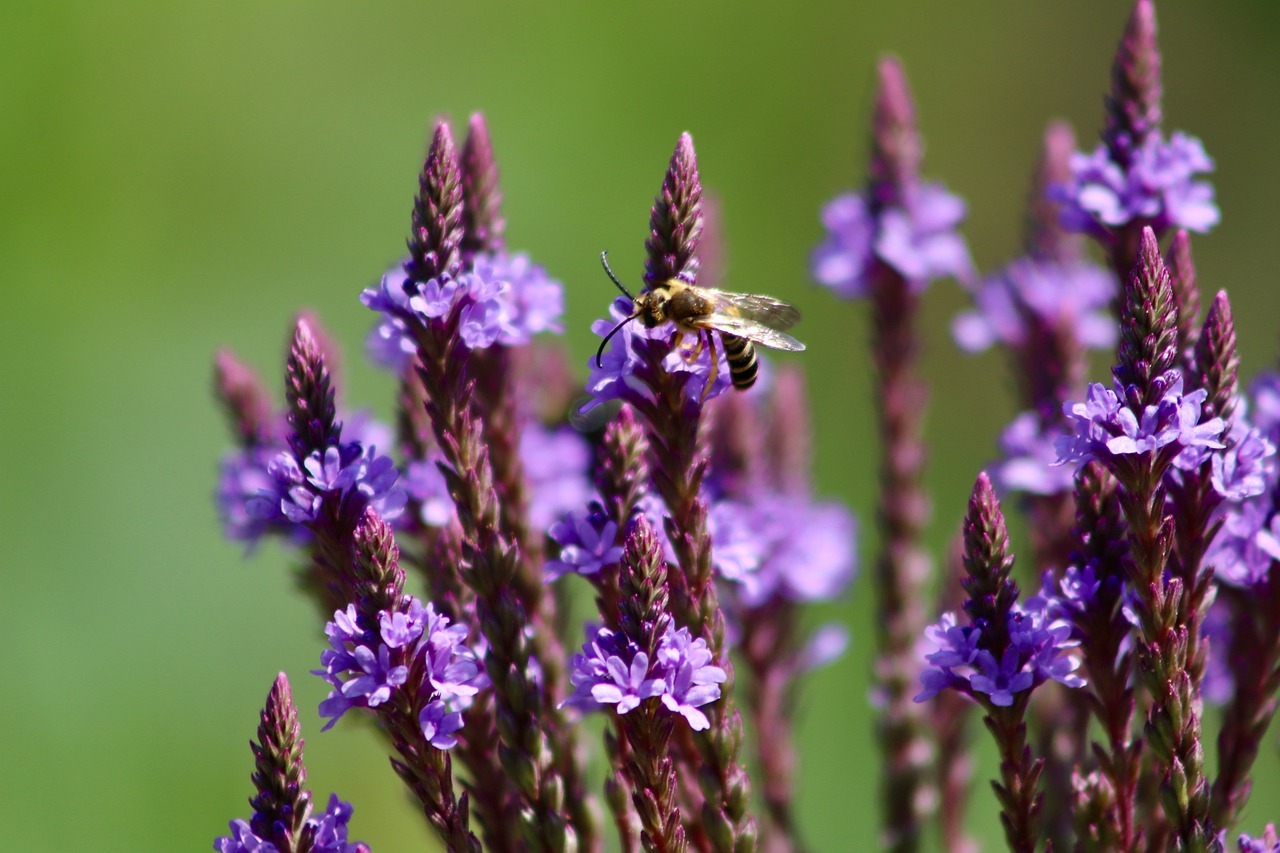Verbena officinalis, the common vervain or common verbena, is a perennial herb native to Europe. It grows up to 70 cm high, with an upright habitus. The lobed leaves are toothed, and the delicate spikes hold clusters of two-lipped mauve flowers. Because of its name, common verbena is often confused with lemon verbena, which also belongs to the verbena family. This is often offered in stores under the misleading names “scented verbena” or “sweet-smelling verbena”. A distinction is already possible through smell and taste. While lemon verbena smells and tastes intensely of lemon, common verbena smells rather inconspicuous or slightly peppermint-like. The taste of common verbena is bitter and tart.
Of the many species of verbena, only fragrant, light purple flowers and fragrant leaves of verbena are used as raw materials to obtain a CO2 extract. Due to the high cost of raw materials, CO2 extract such as verbena essential oil is often adulterated and replaced with similar products derived from lemongrass.
Verbena in the form of oil extracts or essential oil is used to treat inflammatory diseases of the throat – sore throat, pharyngitis, tonsillitis, laryngitis. It is recommended for the treatment of colds and acute respiratory infections. CO2 extract has expectorant and antiseptic properties, fights viruses – for example the herpes virus, pathogenic microorganisms; acts as an immune stimulant. When taken orally, CO2 extract stimulates intestinal motility, relieves nausea and hangovers, and has an antispasmodic effect. It can be recommended for “lazy bowel” syndrome. The extract strengthens the walls of blood vessels, normalizes heart rate and blood pressure. Has a pronounced regenerating and healing effect. Verbena CO2 extract has a warming and anti-inflammatory effect and is therefore well suited as a remedy to relieve joint inflammation and pain of various origins. However, you have to keep in mind that the extract can cause skin irritation in high concentrations. The extract normalizes hormone levels in women and is a powerful aphrodisiac for them.
Verbena CO2 extract has limited use in cooking and food production because it is a rare ingredient. However, this extract can be used as an effective and biologically active ingredient in the formulation of various beverages and for flavoring tea. Verbena CO2 extract combines well with CO2 extracts from citrus fruits, bergamot, juniper, pine, fir and black pepper in drinks.
Verbena CO2 extract “Biozevtika” is a yellow oily liquid with a greenish tint, a fruity-lemon smell with floral notes.

Chart 1. Main components of CO2 extract from common verbena
| NAME | CONTENT IN% OF THE AMOUNT OF VOLATILE COMPONENTS | EFFECT |
|---|---|---|
| Citral | 27 | Antiseptic, anti-inflammatory. Reduces blood pressure. Flavorings in cooking and perfumery. |
| Limonene | 12 | Antibacterial, antidepressant and immune stimulant. Shows anti-inflammatory and antioxidant properties. Perfume aroma, antifungal and aseptic agent. Repellents. |
| Myrcene | 11 | Gastroprotector, diuretic, pacemaker. Has a calming effect. |
| Linalool | 9 | Anti-stress, calming, antispasmodic, anti-inflammatory, antibacterial and antifungal. Flavorings in the food industry and cosmetics. |
| Neral | 7 | Antiseptic, activates tissue regeneration processes. |
| Geraniol | 21 | Anthelmintic, embryotoxic, repellent. |
| Caryophyllene | 2 | Used in perfumery as a natural fragrance. |
| Spathulenol | 4 | Neuroleptic, has a fungicidal effect. |
| Verbenaline | 2 | Central nervous system stimulant, hemostatic, uterotonics. |
| Verbenone | 2 | Stimulator of the nerve endings of the heart, blood vessels, intestines and salivary glands. |
In cosmetics, CO2 extract of verbena is used in the following preparations:
– in night creams to reduce swelling;
– in night creams and masks to smooth wrinkles, tighten the face, reduce sagging skin and its age-related changes;
– in creams and massage products to increase breast elasticity, improve lymphatic drainage and blood supply to the skin;
– in hair care masks as a regenerating ingredient that reduces the activity of the sebaceous glands and gives the hair shine.
In cosmetology, it is not recommended to combine verbena CO2 extract with sunbathing, as these products have phototoxicity.
Verbena is practically not found in the wild. In Tunisia and the southern Mediterranean it is grown to produce very expensive essential oils.
In ancient times, verbena oil extract was considered a sacred elixir with magical properties. In the Middle Ages, verbena, its macerates and essential oils were widely used to treat various inflammatory diseases and even leprosy.
